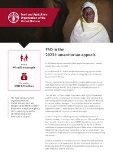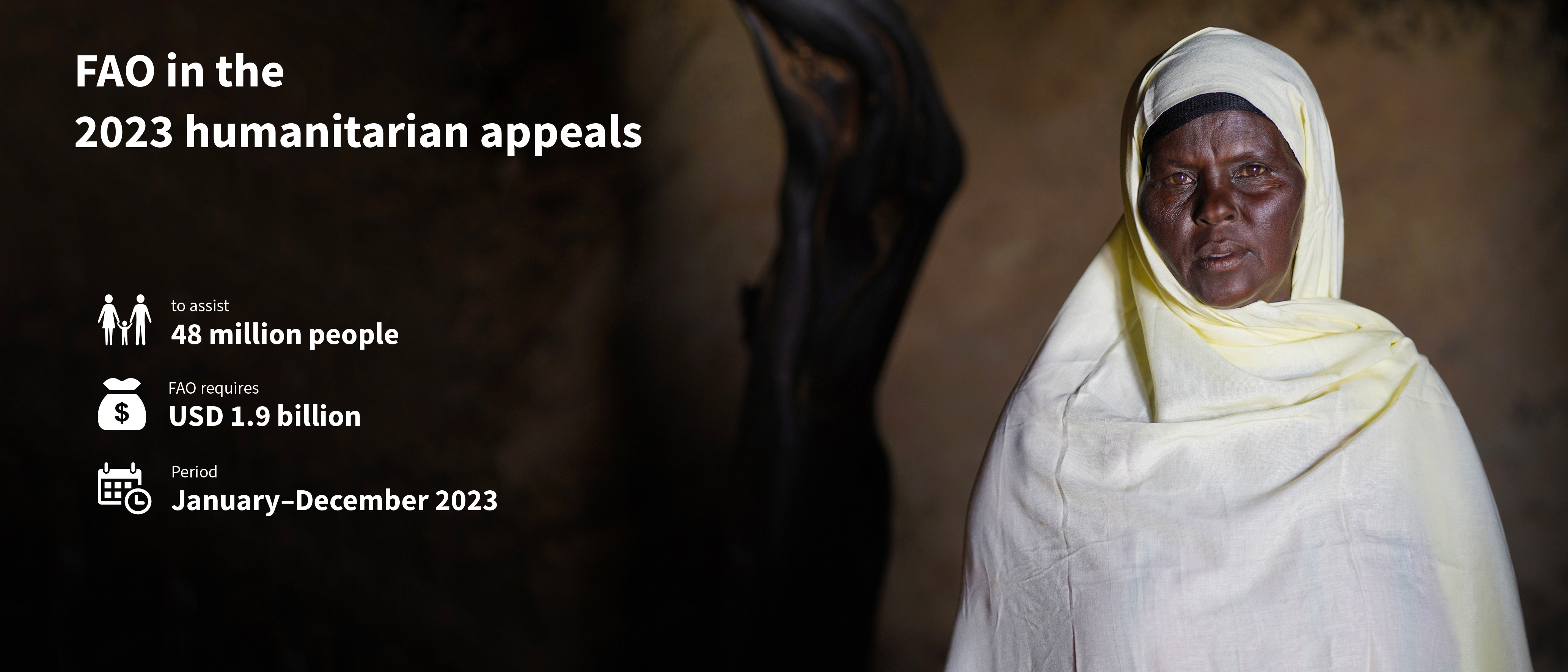
Across the world, 222 million people are experiencing high acute food insecurity, almost one in five of whom are struggling to access enough food to survive the day. They are overwhelmingly farmers, fishers, herders and foresters, whose most basic means of survival have been devastated by conflict or extreme weather (drought, floods), pests, disease or the steady disruption of economic turbulence and instability.
Agriculture aid is life-saving humanitarian aid. Urgent, time-sensitive agricultural interventions, especially when combined with cash and food assistance, have enormous impacts on food availability, nutrition and displacement, among others, significantly cutting other humanitarian costs. More importantly, such interventions are geared towards meeting the needs and priorities of affected communities – allowing them to remain in their homes where it is safe to do so, meet their own needs and lead their own future recovery.
Under the 2023 humanitarian appeals, FAO requires USD 1.9 billion to help almost 50 million people gain access to a steady supply of nutritious food, facilitate their recovery and lay the foundations for resilience to future shocks.
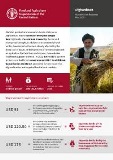
Afghanistan: Humanitarian Response Plan 2023
06/2023
Climatic, political and economic shocks continue in Afghanistan, where two out of every five people face high levels of acute food insecurity.
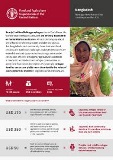
Bangladesh: Rohingya Humanitarian Crisis Joint Response Plan 2023
06/2023
Nearly 1 million Rohingya refugees live in Cox’s Bazar, the world’s largest refugee camp, and are entirely dependent on humanitarian assistance.
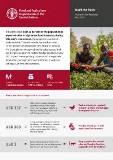
Burkina Faso: Humanitarian Response Plan 2023
03/2023
In Burkina Faso, over 16 percent of the population is expected to be in high acute food insecurity during this year’s lean season, if appropriate assistance isn’t provided.
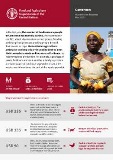
Cameroon: Humanitarian Response Plan 2023
04/2023
In the last year, the number of food insecure people in Cameroon has risen by 800 000. Intercommunity conflict, attacks by non-state armed groups, flooding and rising food prices are pushing people beyond their means to cope.
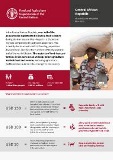
Central African Republic: Humanitarian Response Plan 2023
04/2023
In the Central African Republic, over half of the population is expected to be acutely food insecure during the lean season (May–August) – a 27-percent increase compared with last year’s projection.

